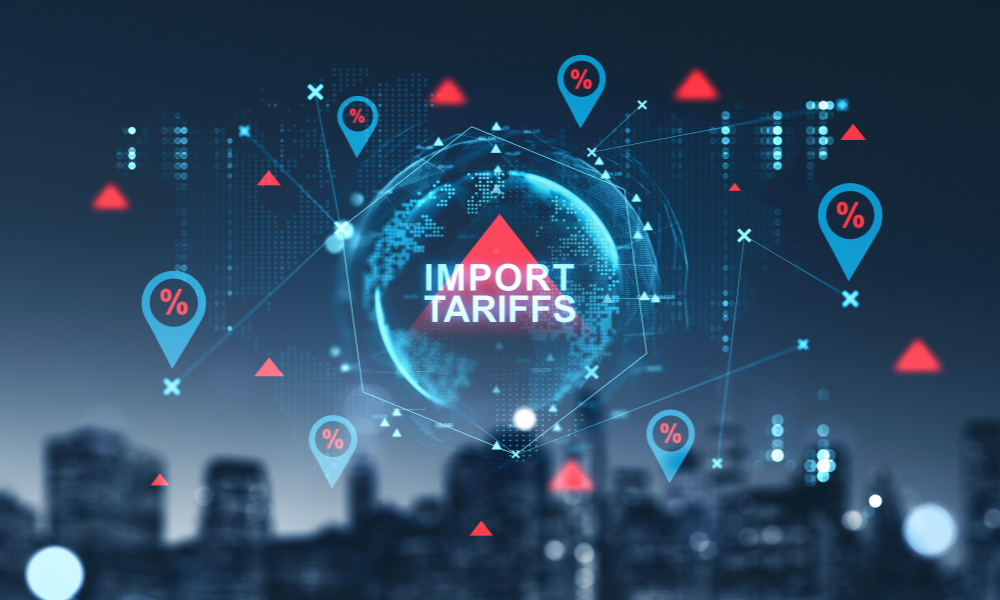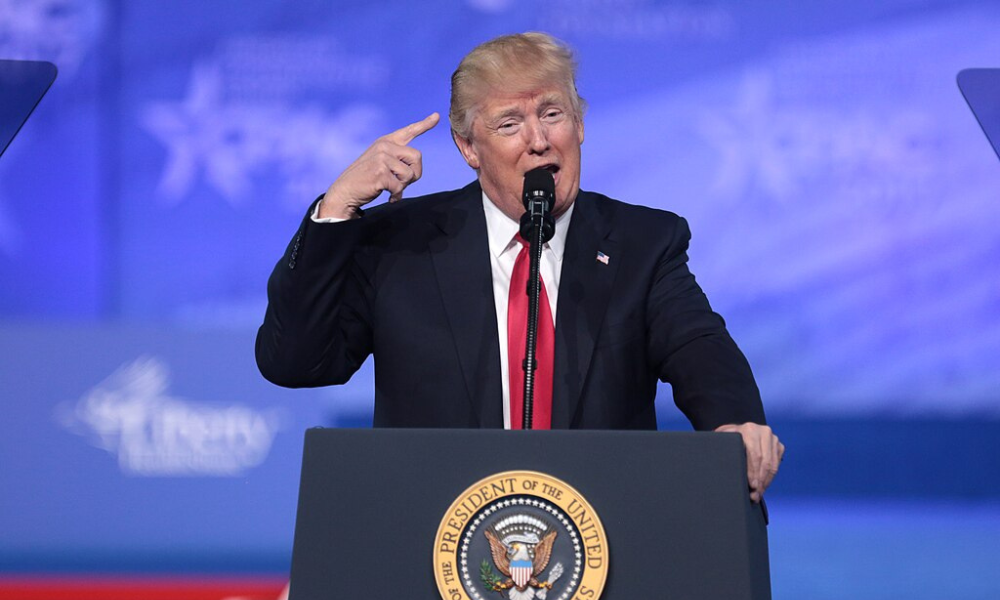Tech and export stocks drag US indexes lower as tariff tensions fears trigger investor retreat

On Friday, the US stock market endured its worst week since early 2020 as China imposed retaliatory tariffs on US goods, sparking fears of a deepening global trade war, according to CNBC.
Friday marked the second consecutive day of historic declines across all major indexes, fuelled by concerns that US President Donald Trump’s tariff actions could trigger a global recession.
The Dow Jones Industrial Average dropped 2,231.07 points or 5.5 percent to close at 38,314.86—the largest one-day fall since June 2020 during the Covid-19 crisis.
That followed a 1,679-point decline on Thursday. It marked the first time the Dow has lost more than 1,500 points on back-to-back trading days.
The S&P 500 fell 5.97 percent to 5,074.08, its worst one-day drop since March 2020. Thursday’s 4.84 percent decline had already wiped-out significant gains, leaving the index down more than 17 percent from its recent peak.
The Nasdaq Composite, home to major US technology firms with exposure to China, dropped 5.8 percent to 15,587.79.
The tech-heavy index had fallen nearly 6 percent on Thursday and is now down 22 percent from its December record high—placing it in bear market territory.
All three indexes ended the day at their session lows. Only 14 companies in the S&P 500 closed in positive territory.
Beijing’s commerce ministry announced a 34 percent levy on all US products on Friday. Investors hoping for negotiations before retaliation expressed disappointment.
China also added several American companies to its “unreliable entities list,” citing violations of market rules or contracts.
The government launched an antitrust probe into DuPont the same day. Shares of the company dropped nearly 13 percent in response.
Major tech firms led the selloff. Apple shares declined 7 percent on Friday, contributing to a 13 percent weekly drop. Nvidia, seen as a leader in artificial intelligence, also fell 7 percent. Tesla lost 10 percent.
Each of these companies has significant exposure to China, both in sales and manufacturing.
Outside the tech sector, exporters to China suffered as well. Boeing dropped 9 percent, and Caterpillar lost nearly 6 percent, pulling the Dow lower.
Emily Bowersock Hill, CEO and founding partner at Bowersock Capital Partners, said “The bull market is dead, and it was destroyed by ideologues and self-inflicted wounds.”
She added that while the market may be close to the bottom in the short term, the firm is concerned about the impact of a global trade war on long-term economic growth.
As stocks fell, investors moved into safer assets. The 10-year Treasury yield slipped below 4 percent on Friday, as demand for bonds surged.
Meanwhile, the CBOE Volatility Index (VIX)—a measure often called Wall Street’s fear gauge—jumped above 40, a level typically reached during dramatic selloffs.
Trump remained firm despite the market’s reaction. On Truth Social, he posted Friday that his “policies will never change.”
(Click to view the full post on Truth Social)
truthsocial.com/@realDonaldTrump/posts/114293581018893404
He also wrote recently on the same platform, “Some day people will realize that Tariffs, for the United States of America, are a very beautiful thing!”
(Click to view the full post on Truth Social)
truthsocial.com/@realDonaldTrump/posts/114279756371714617
Jay Woods, chief global strategist at Freedom Capital Markets, said “The fear now as we go into the weekend [is] the trade war escalates, and the US doesn’t back down.”
The S&P 500 ended the week down 9 percent, its worst weekly decline since the start of the Covid-19 pandemic in early 2020.



